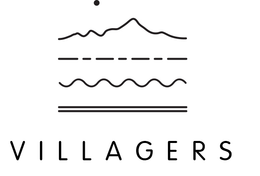
AN OUNCE OF PRACTICE IS GENERALLY WORTH MORE THAN A TON OF THEORY
Last night I read a book review for ‘The Locavore’s Dilemma: In Praise of the 10,000-mile Diet’ by economic geographer Pierre Desrochers and policy analyst Hiroko Shimizu. The two academics take a direct stab at Michael Pollan’s locavore crusade. And I have to admit, many times I question the efficacy of the local food and urban homestead movements efforts to sustain life on this planet. I see validity in both sides of this argument, and the deflating question Why Bother? discourages me more often than I’d like it to. At moments like these, I seriously question my pursuit in opening this business, feeling terribly naive and defeated. Yet I always come back around to what I know to be true, what plainly just feels right. It’s a fine balance. Echoes of this struggle are elegantly told by a young farmer I know, Meghan Cole. Listen to her story here.
Last week I visited Philadelphia where I spent a few years exploring the world of urban agriculture. It was a kind of pilgrimage to rekindle my belief in the ethos guiding SMALL TERRAIN. I stayed with my good friend Elisa Esposito, founder of Emerald Street Urban Farm, and her husband Nic Esposito, an urban ag advocate currently working for the Philadelphia Horticultural Society. The three of us spent a day in Brooklyn exploring some of the city’s urban greening efforts. First we stopped at Hayseed’s Big City Farm Supply, an urban farm pop-up shop in Greenpoint. Their business model is similar to mine, though only temporary. The store was open for three months, April through May… a testing ground for resource and information exchange for urban farmers, and a way for the co-founders to get access to supplies at affordable bulk rates. There has been overwhelming response and support for the supplies and workshops offered there, but they don’t have much interest in sustaining the business long-term….partly due to the high rent of a brick and mortar shop, but mostly because they would rather be farming! Next we went to Brooklyn Grange, a one-acre (40,000 square foot) rooftop farm in Queens made up of roughly 1.2 million lbs of soil and over 20,000 linear feet of green roofing material. Exiting the elevator onto the rooftop, the stark contrast of a field of vegetables and fluttering insects amidst an uninterrupted New York City skyline was…undeniably, sublimely beautiful. But I couldn’t help but wonder about the infrastructure and energy needs to build and maintain a rooftop farm of that scale….is that sustainable? Why bother? Later that day we had dinner with my friend Patryce Bak, who recently founded The Clean Living Guide, a 'free resource…where you can find everything you need to know about how to create a healthy and toxin free lifestyle for yourself and those you care about’. She said she would never eat the vegetables grown there. After all, the air and water those plants take in is most certainly toxic. Sigh. Of course much of the efforts behind urban farming have little to do with the food being produced, and a whole lot more to do with nutritional/environmental education and social entrepreneurship in inner cities. I remind myself that it is worth the bother. Last stop was The High Line, a public park built on an historic freight rail line elevated above the streets on Manhattan’s West Side. I visit the High Line every time I’m in New York, and have done so far before it ever became a public park. I’m not sure which I enjoyed more; the renegade field of weeds and private guerilla gardens that once were, or the well maintained, highly designed public walking experience that now exists. Either way it is inspiring to see nature burst through a sliver of open space.
Okay, so point being, despite the many shortcomings of the local food movement, I do believe that staying closely connected to our food stream and natural resources is vitally important. Not everyone has time or resources to raise their own food, compost, catch rainwater, etc…nor should they have to. But those of us that can and do learn its value through the very cells of our being. These actions may not be the most sustainable when analyzed for carbon footprints and bottom-line statistics on global economic impacts - it’s almost impossible to quantify. Regardless, the inherent knowledge gained is far more profound. Personally, it has created a paradigm shift in understanding the implications of my every day choices, for both my personal well-being and the health of our planet. It has been powerful enough that I will continue to bother with these joyful (sometimes arduous) tasks, and to share my insight and discoveries with others through this shop.
The writings of EF Schumacher remain etched in my mind - “An ounce of practice is generally worth more than a ton of theory”.
Well, there you have it. My first blog post…much longer than intended. I hope you’ll find some inspiration from the links. Thanks for reading!
